#慈しみ
Quote
われは万人の友である。
万人の 仲間である。
一切の生きとし生けるものの同情者である。
慈しみの 心を修めて、つねに無傷害である。
『テーラガーター』六四八
清光寺住職 高橋審也 築地本願寺新報 2000年7月号
0 notes
Photo

ベゴニア・センパフローレンス #begonia_semperflorens #シキザキベゴニア #四季咲きベゴニア #シュウカイドウ科 #flower #花 #ガーデニング #gardening #花言葉 #あなたは親切 #愛の告白 #片思い #慈しみ https://www.instagram.com/p/Cg1VC3shOp9/?igshid=NGJjMDIxMWI=
0 notes
Text


「申し訳ないが、社名「スマイルアップ」は元々ジャニー喜多川がまだ生きてる間に2018年に発足した慈善事業団体「ジャニーズ・スマイルアップ・プロジェクト」なんで、やはりリンクされるため払拭にならないね」
2 notes
·
View notes
Photo
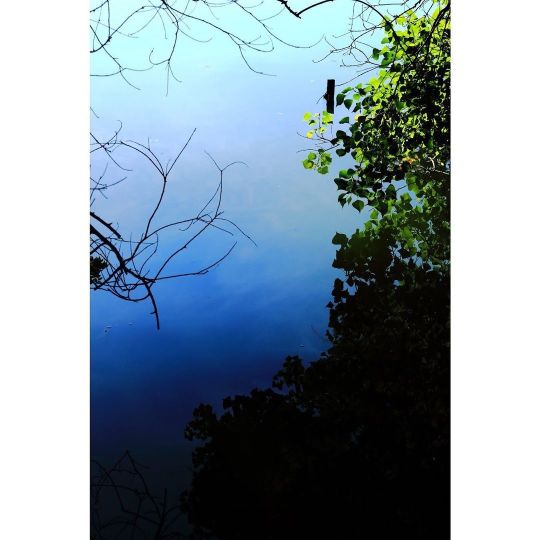
私たちがそれに目覚めようが目覚めまいが、つねに如来の説法はなされていて、私たちはすでに救済されるべき身として如来の大悲の只中に包み取られている。 ー小川一乘 著『親鸞が出遇った釈尊 浄土思想の正意』(真宗文庫)よりー #小川一乘 #悉有仏性 #無条件 #大慈大悲 #いつでもどこでもだれでも #散歩 #つれづれ #今日の言葉 #石神井公園 #撮影散歩 #今日の一枚 #カメラのたのしみ方 #順正寺 #写真 (石神井公園) https://www.instagram.com/p/CgbahMLvxAs/?igshid=NGJjMDIxMWI=
1 note
·
View note
Text
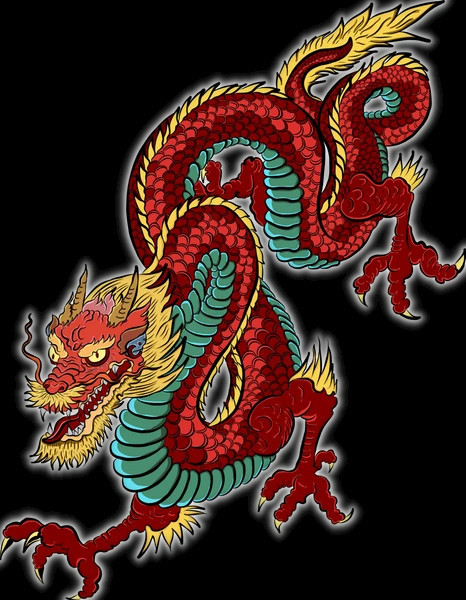
Legends of the humanoids
Reptilian humanoids (3)
Dragon King – the god of water and dragons in Chinese mythology
Many dragons appear in Chinese folklore, of which the Dragon King is the leader. Also known as the Dragon God, the Dragon King is a prominent figure in Chinese art and religion. He is adopted by both Taoism and Buddhism and is the ruler of all water. Known as Long Wang in China, he has both human and dragon forms and can switch between dragon and human forms. Despite his intimidating and ferocious nature, Long Wan is regarded as a benevolent deity who brings good luck and chi energy to people living near the sea.
The Dragon King is a Chinese water and weather god. He is regarded as the dispenser of rain, commanding over all bodies of water. He is the collective personification of the ancient concept of the lóng in Chinese culture.
In East Asian cultures, dragons are most often shown as large, colorful snakelike creatures. While the dragons sometimes have qualities of a turtle or fish, they are most likely seen as enormous serpents.
While some named dragons are associated with specific colors, the dragon king can be shown in any shade. Like other Chinese dragons, he has a “horse-like” head, sharp horns and claws, and a hair-like beard.
Like many weather gods around the world, Long Wang was known for his fierce temper. It was said that he was so ferocious and uncontrollable that only the Jade Emperor, the supreme deity in Chinese Taoism, could command him. His human form reflects this ferocity. He is shown as a noble warrior in elaborate bright red robes. He usually has a fierce expression and poses with a sword.
During the Tang dynasty, the Dragon King was also associated with the worship of landowners and was seen as a guardian deity to protect homes and subdue tombs. Buddhist rain-making rituals were learnt in Tang dynasty China. The concept was introduced to Japan with esoteric Buddhism and was also practised as a ritual of the Yin-Yang path (Onmyōdō) in the Heian period.
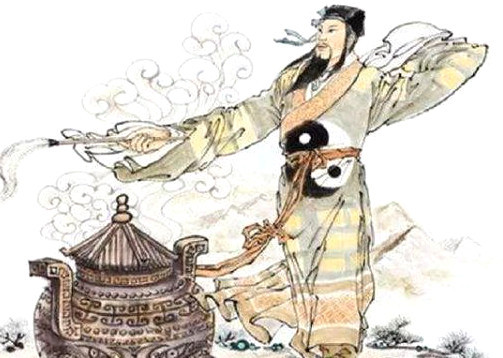
伝説のヒューマノイドたち
ヒト型爬虫類 (3)
龍王 〜 中国神話の水と龍の神
中国の民間伝承には多くのドラゴンが登場するが、龍王はそのリーダーである。龍神としても知られる龍王は、中国の芸術と宗教において著名な人物である。道教と仏教の双方に採用され、すべての水の支配者である。中国ではロンワンと呼ばれ、人間の姿と龍の姿の両方を持っており、ドラゴンと人間の姿を行き来することができる。その威圧的で獰猛な性格にもかかわらず、ロン・ワンは海の近くに住む人々に幸運と気のエネルギーをもたらす慈悲深い神とみなされている。
龍王は中国の水と天候の神である。彼は雨を降らせる神とされ、あらゆる水域を支配する。彼は中国文化における古代の「龍 (ロン)」の概念の集合的な擬人化である。
東アジアの文化では、龍は大きくてカラフルな蛇のような生き物として描かれることが多い。龍は亀や魚の性質を持つこともあるが、巨大な蛇として見られることが多い。
特定の色を連想させる龍もいるが、龍王はどのような色合いでも描かれる。他の中国の龍と同様、「馬のような」頭部を持ち、鋭い角と爪を持ち、髪の毛のようなひげを生やしている。彼の人間の姿はこの獰猛さを反映している。彼は精巧な真っ赤なローブを着た高貴な戦士として描かれている。通常、獰猛な表情を浮かべ、剣を持ってポーズをとる。
世界中の多くの気象の神々と同様、龍王は激しい気性で知られていた。あまりに獰猛で制御不能だったため、玉皇大帝にしか彼を指揮できなかったと言われている。
唐の時代、龍王はまた、大地主の崇拝と結びついて、家を守り、墓を鎮める守護神と見なされていた。仏教の雨乞いの儀式は、唐代の中国に学んだ。この概念は密教とともに日本に伝わり、平安時代には陰陽道の儀式としても行われていた。
#humanoids#legendary creatures#hybrids#hybrid beasts#cryptids#therianthropy#legend#mythology#folklore#s.f.#nature#art#dragon king#dragon god#chinese mythology#chinese dragon
131 notes
·
View notes
Text
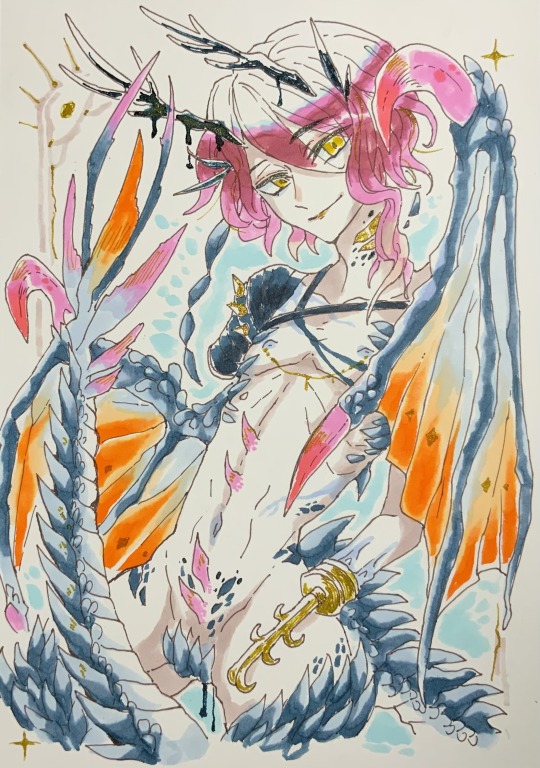
炎花の隷竜
雪晶の幼竜を自らの弟であると思いこみ、身を徹して守り抜こうとした愚かな竜。
体は削がれ、力も抜かれ、記憶も盗まれた。
身を捧げて愛する心だけがその花のような体に残された。
その慈愛に満ちた微笑みは何に向けられていたことか忘れてしまったが
腹の中の器はその雪晶の雫を抱いたままだった。
24 notes
·
View notes
Text
Library of Blessings (祝福のLibrary) english translation
Japanese lyrics used are at the very end. Feel free to let me know about any mistakes or ask any questions about the translation.
Bolded words in the English version represents the words that are written in the song lyrics that they pronounce as the word between dashes (-like this-)
English
God Bless! Life is Novel
Letters scattered upon this world
Like fragments -pieces- of a star
People pick up and collect them, composing a part of a story
As it changes within confines of time
It is written penmanship -proof- of life
Joy
Mercy
Sorrow, wrath
Unsightly things too
That beautiful melody -tune-
Is here
That well-known and celebrated tome -long novel-
And that nameless one-line poem
Are both equally a god’s publication
Aah, extending in a helix
Lining up in a bookcase, innumerable shelfbacks
The Library of blessings
Like tracing on the scale -sound-
If you leaf through the pages
The wind blowing across them
Please may it…
Forevermore -eternally-
Good and evil are two sides of the same coin
Will it be a comedy?
Will it be a tragedy?
With western ink -ink- that dissolves both love and sin
Etch an opus -dream- that engulfs your ideals
What do you wish for? What do you desire?
Oh illusion of unsolicited remarks
With ephemeral
Warmth
Strength and fragility…
Place it upon, incomparable, sublime leaves of sound
Let us captivate
That way of life
Now, from the heavens raining down
What that parental fondness -agape- illuminates
Is it only tales of success?
Nay! That unfinished tale of an adventure -adventure-
That upfront memoir
Such things are also sacred
Come, dearest live’s
Poem -song-, resound, let them be gently offered
The Library of blessings
With a pure heart offer it
To the future
Japanese
God Bless! Life is Novel
この世界に散らばる文字
まるで星の断片-かけら-のよう
人はそれを拾い集め 一篇の物語を綴る
移ろいゆく時の中で
記されし命の筆跡-プルーフ-
喜び
慈しみ mercy
悲しみ 怒り
醜くも
美しき旋律-しらべ-が
此処に
かの名高き長篇-ロング・ノヴェル-
名も無き一行詩も
等しく神の書物
嗚呼 螺旋に連なる
書架に並ぶ 無数の背表紙
祝福のLibrary
音階-おと-を手繰るように
頁めくれば
吹き抜けてゆく風
どうか
永遠-とわ-に
善と悪は表裏一体
喜劇なのか
悲劇なのか
愛も罪も溶いた洋墨-インク-で
理想を込めた作品-ゆめ-を刻んで
何を願い 何を望む
問わず語りの幻影よ
儚き
温もりと
強さと 脆さ…
比類無き 気高き音の葉に 乗せて
生き様を
魅せよう
今 天より降り差す
慈愛-アガペ-が照らすのは
成功譚のみか?
否!未完の冒険物語-アドベンチャー-
愚直なる回顧録
それもまた尊い
さあ 愛おしい人生の
詩-うた-を奏で そっと収めよう
祝福のLibrary
未来へと
捧げんと
#enstars#enstars translations#ensemble stars#entars valkyrie#my attempts at translation#song translations
42 notes
·
View notes
Text
Acanthe - translation and EN lyrics

✦✦Valkyrie ✦✦Enstars ✦✦
**This is not an official translation. All rights to the lyrics and characters etc. are property of Happy Elements. The only thing that is my own is the translation**
~Acanthe~(1)
Mika: 春のParfum 誘われ目覚める
The spring perfume…invites me awake, and slowly, I open my eyes
Shu: 愛を閉じ込めた 記憶と思い出たち
Remainders of our memories / and the love they bore are caged there within you
Shu: 呼び起こす 命の啓蒙
Calling out your name / to wake you to life again
Mika: 淡く騒めく
So Fleetingly I stir
Both: 希望を知って
Is our prayer of hope heard?
✦✦✦✦✦
Shu: 蘇れ(2)
Come back to life!
Mika: 歌声の花が舞う
Oh, how the flowers sing and dance for me
Shu: 古の
And these faded dreams
Mika: 想いは咲き誇り
Will set their glorious blossoms free
Shu: 香り立つ
The scent they bring
Mika: 恩寵の
Fills the air with blessings from god
Both: 雫を待ち焦がれている
And so we wait for the rainfall!
✦✦✦✦✦
Mika: 朽ちながら
And as time forgets
Shu: 憧れと幻想を
You lay longing for the world you lost
Mika: 期待して
Let it fall on me
Shu: 眠れるHermitage(3)
While you sleep in your hermitage
✦✦✦✦✦
Both: いつか 心を吹き込む口付けと
Someday, this kiss I give will lead your heart closer to me
Mika: 永遠を
To eternity
✦✦✦✦✦
Shu: 春のLumiere 確かな温もりは消えない
The Spring Lumiere…..this warmth I feel / It shall not fade away from me
Mika: 硝子越し 途切れた時間を
Through the glass facade / The hourglass, I fear, is empty
Shu: 三度動かす
And thrice it starts again
Both: 出会いは運命
As the wheels of fate spin
✦✦✦✦✦
Mika: 甦れ(2)
Wake me again
Shu: 歌声が芽吹く今
I listen to your song as it matures
Mika: 永久の
And forever on
Shu: 想いが棚引いて
Shall I let my heart endure
Mika: 馥郁と
And the fragrant rain
Shu: 輝きに
The brilliant light within
Both: 満ちた未来を夢に見る
Will fill us with the dream of ardent future
✦✦✦✦✦
Shu: 錆び付いて
I fight back the rust-
Mika: 壊れかけた孤独に
I cry out scared and desolate for you
Shu: 寄り添って
Let me hold you close!
Mika: ここはHermitage
Together in this hermitage
✦✦✦✦✦
Both: いつか その身を抱きとめる腕と
Someday, you'll have the arms to reach out and hold onto me
Shu: 永遠を
For eternity!
✦✦✦✦✦
Shu: 巡る季節に終焉など無いと
Even if the spring and fall shall keep coming back upon thus
Mika: 物言わずとも魂が在ると
Even if my soul remains without a song to sing between us
Shu: 伝える為に
Every time I will declare
Mika: この綻びを
Each frayed seam I will repair
Both: そっと結び合わせて
So I finally find my way back to you
✦✦✦✦✦
Shu: 追憶の
I reminisce
Mika: 残り香を慈しむ
Of the petals’ dance that lingers on
Shu: いつぞやの
And how time ago
Mika: 愛情は飾られた
Our love is what adorned this song
Shu: 傷跡も
And The scars you bear
Both: 時代を超えてきた証
Is proof enough that all can cross over with you
Mika: 末枯れようと忘れはしない
I will not let it go even if I wilt away!
✦✦✦✦✦
Both: 歌声が消えようと
Even if the song you sing dies out
Mika: 幾度と
Time and time again
Both: 想いが途絶えようと
Though you may forget what it's about
Shu: 与えよう春を
The spring I grant to you remains
Mika: 繰り返す愛を
And will let love bloom once again
Both: 心を吹き込む口付けと 永遠を
I hope this kiss I send will tell your heart of me-
Eternally!!
✦✦✦✦✦
(1)-Acanthus is a genus of herbs/flowering plants also commonly known as "bear's breeches". Roman and Greek culture often used acanthus leaves in architecture, and the leaves have many different medicinal uses.
It is also seen as a symbol of rebirth, immortality and persistence through hardship, due to its wide habitat and perennial nature.
(2) Hermitage means a place or period of seclusion, often for religious purposes.
(3) An interesting note here is that Mika and Shu are actually using the same verb, よみがえ. Or rather, they are using verbs here that have the exact same reading and almost indistinguishable meanings.
Through some of my research and poking around though, I've found they can have subtle differences.
Both verbs have the meaning 'to be revived, to come back to life' but the version Shu uses, 蘇れ(, is usually used for living things like a person coming back to life/being resurrected.
However, the version Mika uses, 甦れ, while meaning 'to be revived' seems to be used more for figurative concepts or things coming back to life. Like memories being recalled, a 'car coming back to life', or, a doll being repaired.
These lyrics are not a word for word translation, and are an adaptation of the original song's message, made to (pretty much) fit in with the original vocals. Again, it's my interpretation, but I wanted to keep the meaning close to what it was in Jp while coming across as what one would write in an En song.
anyway thank you for reading I shall now sink back into the bog I came from.
17 notes
·
View notes
Quote
きのうTLみてたら、インドの国名がバーラトに変えるなら、パキスタンがインドを名乗るかも知れないと。かねてからパキスタンではインダス川流域にふさわしい国名にすべきという議論があったんだとか。
Xユーザーの慈永祐士さん
11 notes
·
View notes
Text

Ekaku Hakuin (1685-1768)
Hamaguri-kan’non
Here, the Kan’non Goddess of Mercy, who has appeared from inside a hamaguri clam, is preaching to creatures of the sea, including the Dragon King, fish and clams. The Hamaguri-kan’non is one of the 33 Kan’non. Only the clam and the Kan’non are usually depicted. The inclusion of the Kan’non’s audience is an original concept of Hakuin. It is based on the essence of the Kan’non-gyo Sutra contained within the Lotus Sutra in which the Kan’non appears in a form appropriate to her audience to save the various living beings of this world. The words of praise are derived from a passage from the Kan’non-gyo Sutra and mean “With compassionate eyes, she looks at all living beings, and good fortune gathers, boundless like the sea.” The work is believed to have been painted when Hakuin was in his early 70s.
白隠慧鶴(1685~1768)
蛤蜊観音図 はまぐりかんのんず
蛤蜊から出現した観音が、龍王をはじめ魚や貝など海の生きものたちに説法している。蛤蜊観音は三十三観音の一つで、通常は蛤蜊と観音のみを描くが、このような聴衆を描き込むのは白隠の創作である。観音がこの世のさまざまな衆生のために、その衆生に応じた姿となって現れ救済するという『法華経』普門品の主旨に基づいている。賛の「慈眼視衆生、福壽海無量」も同経の一節に由来するが、「聚」字を「壽」字に変えている。白隠70代前半の作と推定される。
9 notes
·
View notes
Text
釘付けの蝙蝠
江戸浅草阿部川町のとある商家での話である。
土蔵の雨除けが傷んできたので修理を検討した。
見積もりによると費用はそれほど高くない。しかし最近、商売の儲けがあまり出ていないことを大工に伝えた。
「だったら修繕で対応しやすよ。今の傷み具合なら当面は何とかなりまさぁ」
というわけで、あちこちに釘を多く打ち込む修繕で済ました。
それから三年経った。
雨除けの傷みが、もうどうにもならなくなったので、いよいよ雨除けを作り直すことにした。
大工が雨除けの板を引き剥がすと、板と壁の間に一匹の蝙蝠がいる。ここに棲みついている奴のようだ。
飛んで逃げようとしないので、変だな、と思ってよくよく見ると、翼が釘で打ちつけられていた。釘の周りの翼の肉は盛り上がって環になっている。
人に驚いた蝙蝠は釘を軸にして、くるくると回転し始めた。長年そうしていたようで、蝙蝠の下の壁土が円形に窪んでいる。
「ああ、可哀そうなことをしちまった。三年前の修繕んとき、棲みついてた蝙蝠を釘で打ちつけちまったに違ぇねぇ」
それにしても、長年こんな状態で何を食って生きてきたんだろう。
大工がさらに周囲をよくよく調べてみたら、蝙蝠の下に糞が積もっているのが見つかった。
やがて話を聞きつけて近所の人々が集まってきた。その中の一人が言った。
「糞が溜まっているってこたぁ、餌を食ってったってことだな。打ちつけられている蝙蝠が雄か雌か判らんが、番の相手方が餌を運んで食わしていたんだろう。間違ぇねぇ」
それを聞いた人々は皆、夫婦の情の厚さに感じ入り、涙を流して憐れんだ。
大工は槌を投げ出して、涙ながらに言う。
「蝙蝠よぉ。お前ぇは畜生なのに人間である俺に慈悲ってもんを教えてくれたんだ。偉ぇ坊さんみてぇになぁ。俺ぁ生涯このことを絶対忘れねぇよ。すまなかったなぁ」
商家の主人も蝙蝠を憐れみ、釘を抜いて逃がしてやるだけで、雨除けを作り直すことは取り止めた。
その蝙蝠はその後も元通り棲み続け、毎日、夕暮れになると出入りしたのだそうだ。
(山崎美成『提醒紀談』巻五 「蝙蝠」)
16 notes
·
View notes
Text
CFferdinant in SS

"I know your determination. I know your feelings. That's why I'm here. There's nothing we can't overcome together."
I have a fanciful imagination about Ferdinand recalling memories of CF up until March 5 years later, around the branching point of the SS route. The reason 18-year-old Ferdinand has a gentle expression is because within him exists the 23-year-old CF Ferdinand.
以下、日本語(Japanese) くだらない妄想
「君たちの覚悟を知っている
君の思いも知っている
だから私はここにきた
我々に乗り越えられないことはないと」
SSルートの分岐点あたりで、5年後3月までのCFの記憶まで思い出したフェのヒュフェ妄想 18歳フェが優しい表情なのは、中に23歳の紅花のフェがいるからです
SSでただ1人、突如CFの1185年3月までの記憶を思い出してしまったフェル。フェルはは先生を帝国につくよう説得しようとしましたが、先生は全てを聞きながら神の方に味方し、他の生徒も先生についていき、ただ1人フェルだけが部下たちを連れて単身帝国に向かってしまいます。
ここで注意していただきたいのが、フェル君あくまでもCFの5年間のの記憶を思い出しただけということです(SSを思い出したわけではない)フェルが全ルート記憶を思い出した場合���先生に逆らってまで帝国につくかは分かりません。
主従は本来の若い18歳のフェからの、あまりの精神面の変化とあまりの冷静さに、エデ様はフェルがすでに自分の力量を正確に測っていることで怪しみますが(CFにてエデ様の支援Bのだる絡みを経験してるため、ここでは発生しない)落ち着いた人柄と的確さでフェルは逆に信頼を勝ち得ます
エデ様には主君として絶対の信頼を、ヒュには信頼と慈愛の目を向けます。精神的には23歳という年上のフェは、まだ年若い2人を全力で支えるわけです。ヒュはそれに不可思議な感覚になり、フェをさらに怪しむ(2回目)
ヒュはフェを当然怪しみ危険人物とみなし一度殺そうとしますが、フェはヒュを絶対的に信頼してる為何をしても動じず、逆にヒュは動揺し殺せなくなるわけです。ヒュは少しずつ、フェを信じてみることにし、原作より早いスピードで仲良くなるわけです。
ヒュフェ視点では、CFのヒュフェは恋人同士でしたがフェは何も告げないわけです。フェが帝国に来たのはあくまで「帝国の方が正しく、帝国の正義のため」であって「ヒュの恋人である」という個人的な理由ではない為、秘めたままにするわけです。
さらにCFフェは5年間3月の、一兵卒から一将にのし上がった苦労の記憶がある為、部下の立場ながらも皇帝に助言もある程度でき(流石に先生とまではいかないが)、兵の使い方を知り尽くしているため、通常のSSより教会がやばいことになります。
劇的な変化には見えなくても、フェが連れている兵だけはかなり生還し、圧倒的に生存確率が底上げされる感じです。故に帝国の軍力のHP、守備、回避率が徐々に上がりなかなか削れず教会は苦労するという感じです。
5年後より早い時点で、ヒュフェは前世のように恋人同士になりますが、フェは前世の経験があります。ヒュはフェが経験者であることに驚きを隠せない様子でしたが、そこでようやく前世で恋人同士であることを告げます。
なぜ早く言わなかったんだと責めるヒュですが、国についたのは個人的な理由ではなく大義であることを証明したかったということを告げるフェ......そこでヒュもまた.....前世でのフェとの記憶を思い出すわけです.....
5年後の先生が目覚めた日から、帝国の戦局は一気に悪化します。ヒュはフェを個人的な感情の上でも理性的に考えても戦力として失いたくないですが、フェは君の遺言など聞きたくないのと、軍師としてヒュは失うわけにはいかないと、当たり前のようにヒュよりも先に死ぬ覚悟をしています
そして3月、フェと他キャラ、ミル大橋で戦うわけです。先生がいた為教会が勝ちますが、フェも前世で戦いを知り尽くしていた為、黒鷹学級の全員orそれ以外の名のついたキャラ全員(教会他スカウト組)という、大量の犠牲者が出ました。
最終的にはやはり先生がいるため教会が勝ち、帝国はかなわず滅びるわけでしたが、先生にもフェを失った主従にも、どちらにも大きな傷を残したのでした。
フェがヒュに遺した言葉、「君たちについて本当に良かった」END
くだらない妄想に付き合っていただき、ありがとうございました!
19 notes
·
View notes
Text
愛のふりだし
「いかにして役立たずを愛するか?」
最近読んだ小説に書いてあった。物語は、酔狂な慈善家が、不具者、醜女、老人、性的少数者その他あらゆる「役立たず」の救済に立ち回る、というもの。
私たちは基本的に物事を役に立つかどうかを見ている。最新家電や、有用な資格や、いかした服が欲しい。それは人間に対する視点もそうで、気の利く後輩や、頼れる上司や、賢い友達や、身持ちのいい恋人や、太い実家が、役に立つなら、そばに置いておきたい。もっといえば、役に立つなら愛せるし、役に立たないなら、愛するのは難しい。これは露悪でも優生主義でもなくて、我々はそういうスカウターみたいな色眼鏡をかけさせられて生きている。
他者を愛せないことは怖い。そして他者から愛されないことはもっと怖い。先天的な障害は誰にとっても「そうだったかもしれない自分」であり、後天的な障害は誰にとっても「そうなるかもしれない自分」である。誰かを役に立たないといって断じるとき、いま現在たまたまそうじゃない自分があぐらをかいて嗤っている。
我々は役に立ちたい。一見美しい情動だ。役立って愛されたい。その実、役立たないと愛されないのを知っているから。勉強して知識を蓄え、運動して体力を養い、気を遣い、冗談を言い、口淫をし、席を譲り、金を払い、常に自分を役立たせたい。自己愛に置き換えても同じだ。自分が自分の役に立っている。その実感が自己を愛させる。
機械化によって人間の仕事が奪われる、といわれて久しい。農業も畜産も漁業も林業も建築も金融も小売も卸売も教職も医療もマスコミも司法も行政も戦争も性欲処理も芸術さえも、全ての仕事が機械化されたら、全ての人間は役立たずだろう。
役に立とうとすることがダメだと言いたいわけではなくて、だから、愛されるために誰かの役に立ったり、愛するために誰かを役立てたりしていたら、いずれ誰も愛せなくなるし、誰からも愛されなくなるんじゃないかってことがいいたい。
そもそも愛って何だ。
高校生の時から使っている市営の駐輪場に、おっさんたちが働いている。定年後と思われるおっさんたちは、高年の男性特有のどこかぶっきらぼうな気さくさでいつも我々利用者を迎え入れ、見送ってくれる。この4月から、その駐輪場に機械式のゲートが導入された。利用者にはICカードが発行されて、契約期間の更新の管理もそれで行うことができる。だからといって、おっさん達が仕事を追われたというわけでもないようで、人員もどうやら以前と変わっていない。ただ、おっさん達はどこか手持ち無沙汰な様子。出入りするゲートには、ICカードの読み取り機が設置されている。見ればわかるのに「←ここにカードをかざす」なんてわざわざ手書きの貼り紙がある。おっさんたちの仕業だろう。四方をセロハンテープで補強されたポストイットに、そこに書かれたおっさんの筆跡に、その人間臭い承認欲求に、俺は親しみを覚える。これは愛だろうか。多分違う。でも少しは近いかもしれない。
「いかにして役立たずを愛するか」
だから、たぶん、私たちにいずれ必要なのは、無償の愛ではなくて、愛着だと思う。手垢のついた古道具みたいな。できれば、わたしとあなた、双方向の愛着。愛着が生まれるには、ひどく時間がかかる。とっくに時代遅れで、とっくに型落ちで、とっくに役に立たなくなって、それでもなぜか手放せない、しみったれた未練とも違う、あのあたたかい気持ちの正体を、俺たちは見極めていかないといけない。愛着って言葉に愛って字が入ってるのは、なんて皮肉だろう。
もっと個人的なことも書けるけれど、これでやめます。
*
成田悠輔氏の言動によせて。5年前に書いたものを少し書き直しました。
63 notes
·
View notes
Text

万人がおなじ幸せや哀しみや喜びや苦しみや慈しみを感じれるわけじゃないんだよな
わかってる
でも、なんだかツラい時もあるな
…
ちょっとひと休み
28 notes
·
View notes
Text

慈しみの雨
342 notes
·
View notes
Photo
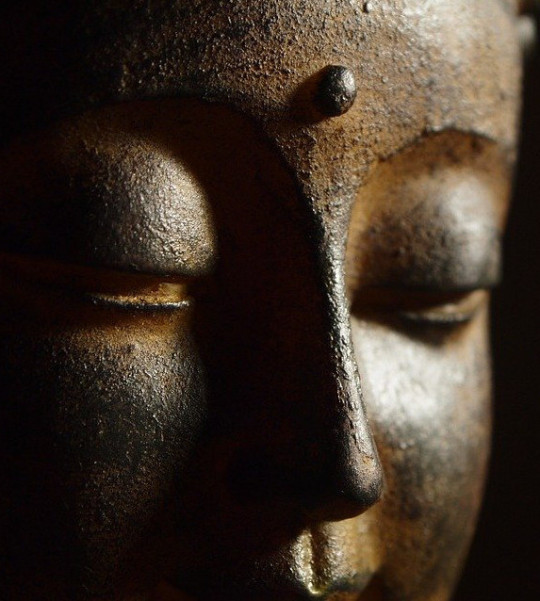
The Quest for Buddhism (108)
Buddhist cosmology
Mental Factors in Buddhism - The list of 52 important factors, Part 2
In Theravada Buddhism of the Southern Tradition, in accordance with the Abhidhamma Sangha, there are a total of 52 kinds of mental factors. The rest of 25, as follows [See the first 25] :
25 beautiful mental factors (sobhana cetasikas) accompany the wholesome consciousnesses (kusala citta). They are:
【Universal beautiful mental factors (sobhanasadharana) 】
Saddhā - faith
Sati - mindfulness
Hiri - shame at doing evil
Ottappa - regard for consequence
Alobha - lack of greed
Adosa - lack of hatred
Tatramajjhattatā - balance, neutrality of mind
Kāyapassaddhi - tranquility of mental body
Cittapassaddhi - tranquility of consciousness
Kāyalahutā - lightness of mental body
Cittalahutā - lightness of consciousness
Kāyamudutā - malleability/softness of mental body
Cittamudutā - malleability/softness of consciousness
Kāyakammaññatā - wieldiness of mental body
Cittakammaññatā - wieldiness of consciousness
Kāyapāguññatā - proficiency of mental body
Cittapāguññatā - proficiency of consciousness
Kāyujukatā - straightness/rectitude of mental body
Cittujukatā - straightness/rectitude of consciousness
【Abstinences (virati) 】
Sammāvācā - right speech, to leave evil speech acts, such as lying
Sammākammanta - right action
Sammā-ājīva - right livelihood
【Immeasurables (appamanna) 】
Karuna - compassion
Mudita - sympathetic joy
【Faculty of wisdom (pannindriya) 】
Pannā - wisdom

仏教の探求 (108)
仏教の宇宙論
心所(しんじょ)〜 心の働きを理解するために重要な52要素・その②
南伝の上座部仏教では、摂阿毘達磨義論 (しょうあびだつまぎろん、巴: アビダンマッタ・サンガハ) に則り、合計52種類の心所があるとされている。残りの25種類は、以下の通りである[最初の25種類を参照]:
健全な意識 (梵: クサラ・チッタ) には、25の浄心所 (じょうしんじょ、梵: ソーバナ・チェータシカ、美しい心的要素の意) が付随している。それらは:
【共浄心所】
信(しん、梵: サッダー) - 仏法僧など、善なる対象に対して心を澄ませること
念(ねん、梵: サティ) - 気づき、自覚
慚(ざん、梵: ヒリ) - 罪を恥じること
愧(き、梵: オッタッパ) - 罪を恐れること
無貪(むとん、梵: アローバ)- 貪欲でないこと
無瞋(むしん、梵: アドーサ) - 慈しみ
中捨(ちゅうしゃ、梵: タトラマッジャッタター) - 心の平静さ
身軽安(しんきょうあん、梵: カーヤッパッサッディ)- 精神体の軽さ
心軽安(しんきょうあん、梵: チッタッパッサッディ)- 静寂な意識
身軽快性(しんきょうかいしょう、梵: カーヤラフター)- 体の身軽さ
心軽快性(しんきょうかいしょう、梵: チッタラフター)- 心の身軽さ
身柔軟性(しんにゅうなんしょう、 梵: カーヤドゥター)- 体の柔軟さ
心柔軟性(しんにゅうなんしょう、 梵: チッタムドゥター)- 心の柔軟さ
身適合性 (しんちゃくごうしょう、梵: カーヤマンニャター) - まっすぐな意識
【離心所】
正語 (しょうご、梵: サンマーヴァーチャー) - 嘘をつくことなど悪しき言葉の行為から離れること
正業 (しょうごう、梵: サンマーカンマンタ) - 正しい行動
正命 (しょうみょう、梵: サンマーアージヴァ) - 正しい生き方
【無量心所】
悲(ひ、梵: カルナー) - 他人の苦しみを取り除いてあげたいという心
喜(き、梵: ムディター) - 他人の幸福を喜ぶ心
【智慧の心所】
慧根 (えこん、梵: パンニンドゥリヤ) - 真理に対する智慧
#mental factors#buddhist psychology#buddhism#mindfulness#wisdom#meditation#theravada buddhism#buddhist cosmology#papilio buddha#beautiful mental factors#buddha#philosophy#nature#art#mindset
224 notes
·
View notes